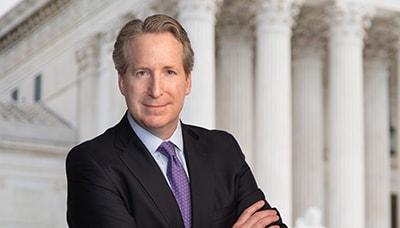Highlights
The HHS-OIG released a favorable opinion on a patient assistance program (PAP) run by a nonprofit that subsidizes Medicare Part D cost-sharing obligations for diabetes treatments
The agency determined low risks for fraud and abuse as the PAP was not controlled or influenced by pharma, would not steer patients to a particular treatment or pharmacy, and would not lead to overutilization or increased costs to federal healthcare programs
The opinion demonstrates the agency’s recognition that such PAPs provide important assistance to patients
The U.S. Department of Health and Human Services’ Office of Inspector General (HHS-OIG) has issued Advisory Opinion 24-07, a favorable opinion regarding a nonprofit’s patient assistance program (PAP) for diabetes prescription drugs.
Nonprofit Patient Assistance Program
Under the proposed arrangement described in the opinion, a 501(c)(3) nonprofit was to establish a PAP to subsidize cost-sharing obligations for diabetes treatments for low-income individuals enrolled in Medicare Part D. The nonprofit was originally created from the proceeds of the sale of a nonprofit hospital. While it does receive some donations, the nonprofit does not receive donations from pharmaceutical entities.
To be eligible for assistance under the PAP, individuals would need to: 1) reside in a defined geographical area, 2) be enrolled in a Medicare Part D plan, 3) not have secondary insurance coverage, 4) have a household income below 400 percent of the federal poverty level, and 5) have a diabetes diagnosis and treatment plan.
An individual’s eligibility would not be dependent on their provider, pharmacy, or treatment plan, but would only be available so long as funding remains for the calendar year. Individuals would only receive assistance for the calendar year and would need to re-apply for continued financial support.
As a recipient of PAP assistance, individuals could obtain their diabetes treatments at a pharmacy of their choice. However, the PAP would designate certain pharmacies as “participating.” Participating pharmacies would submit a claim to the PAP for reimbursement of the individual’s cost-sharing amount; the individual would not pay cost-sharing obligations.
At non-participating pharmacies, individuals would pay the cost-sharing amount up front and submit a claim for reimbursement to the PAP.
Implications Under AKS and Civil Monetary Penalty Laws
The HHS-OIG identified multiple streams of remuneration in the proposed arrangement that implicated the federal Anti-Kickback Statute (AKS) and the civil monetary penalty against beneficiary inducement (CMP) laws. However, in each case, the HHS-OIG ultimately decided the risk of fraud and abuse is low and that it would not impose sanctions.
In making that decision, the HHS-OIG considered the risk of the PAP paying the cost-sharing subsidies. The agency noted that PAPs must remain independent of pharmaceutical entities’ influence. Because the nonprofit PAP is not funded by pharmaceutical entities, the risk of undue influence is low.
Further, the PAP’s structure would not steer patients towards a particular provider or treatment, given that PAP recipients have an existing diagnosis and treatment plan. Also, since the PAP only assists individuals after a good-faith determination of financial need through use of a reasonable, verifiable, and uniform measure of financial aid, the risk of fraud and abuse was low.
The HHS-OIG also considered whether not having to pay out-of-pocket when using a participating pharmacy constituted impermissible remuneration. However, the agency held that the risk of steering patients to participating pharmacies was low, as patients were more likely to select a pharmacy based on objective criteria like location or availability.
Additionally, allowing patients to avoid out-of-pocket costs would not affect clinical decision-making or product utilization.
Lastly, the HHS-OIG analyzed the PAP under the CMP laws and determined again that the likelihood of fraud and abuse was low. The HHS-OIG found it unlikely that the cost-sharing subsides would influence patients to select a particular pharmacy for the same reasons the AKS was not implicated.
Key Takeaways
Advisory Opinion 24-07 builds upon the analysis of multiple past advisory opinions involving PAPs, including Advisory Opinion 24-02 from earlier this year. In Advisory Opinion 24-02, the HHS-OIG looked favorably upon a similar nonprofit program funded by pharmaceutical entities with multiple safeguards to avoid the risk of fraud and abuse. Advisory Opinion 24-07 demonstrates the HHS-OIG’s recognition that PAPs are growing in popularity and the valuable safety net assistance they can provide to patients.
For more information, please contact the Barnes & Thornburg attorney with whom you work or Jason Schultz at 574-237-1210 or jason.schultz@btlaw.com, Megha Mathur at 312-214-8828 or megha.mathur@btlaw.com, or John Kelly at 202-831-6731 or jkelly@btlaw.com.
© 2024 Barnes & Thornburg LLP. All Rights Reserved. This page, and all information on it, is proprietary and the property of Barnes & Thornburg LLP. It may not be reproduced, in any form, without the express written consent of Barnes & Thornburg LLP.
This Barnes & Thornburg LLP publication should not be construed as legal advice or legal opinion on any specific facts or circumstances. The contents are intended for general informational purposes only, and you are urged to consult your own lawyer on any specific legal questions you may have concerning your situation.














